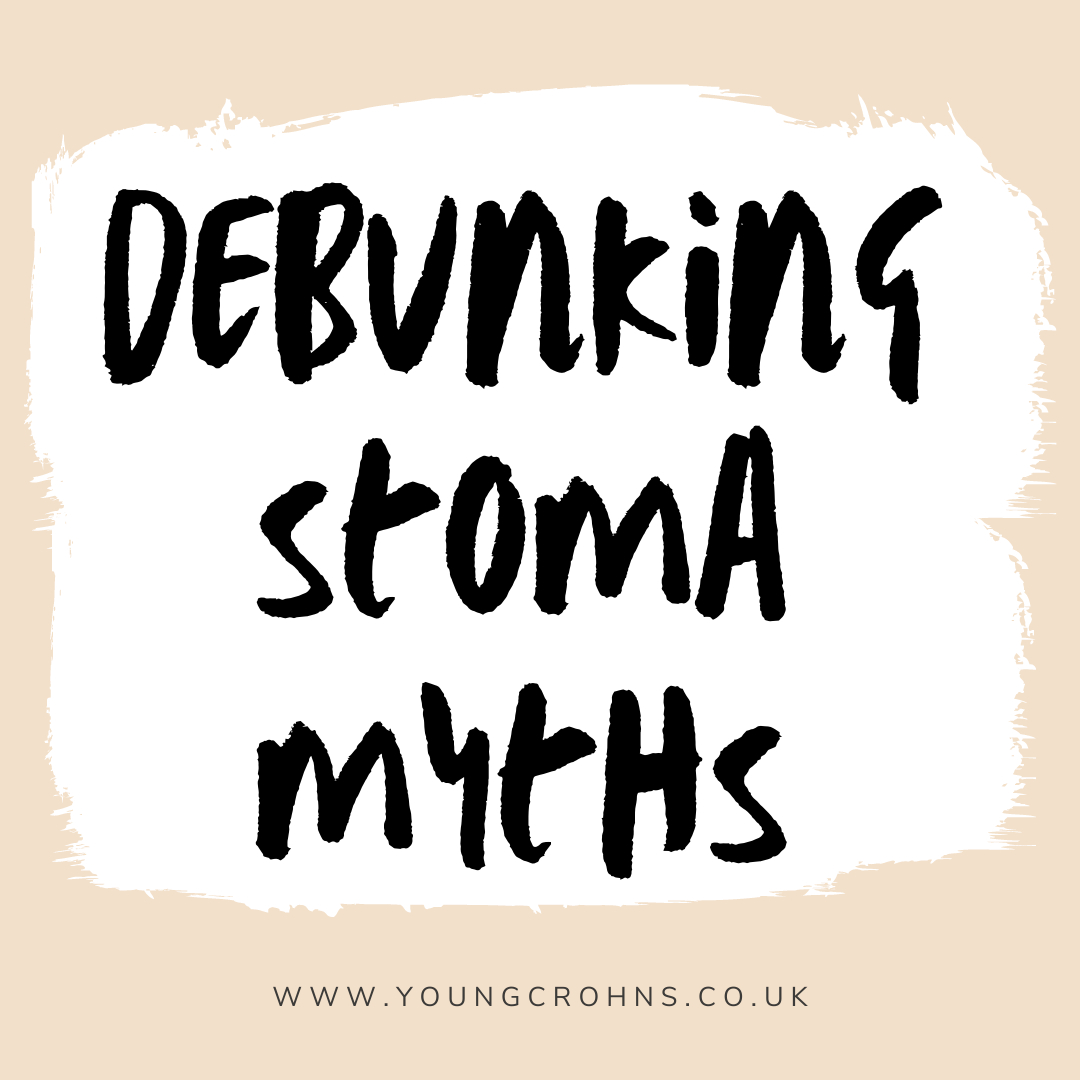
IBD Basics: Corticosteriods
Disclaimer: This information is based on my own research into this particular aspect of IBD as well as some personal experience and should not be used as medical advice or a diagnostic tool. The suggestions given within are taken from sources laid out in the references header. If you seek advice regarding the things you experience within your own disease, please contact your IBD team for medical advice.
If you are looking for the entire ‘IBD Basics’ series, you can find them all here.
What are Corticosteroids & Why are they important?
Corticosteriods are a group of anti inflammatory medications – including cortisone, hydrocortisone and prednisone – which mimic the hormones produced by the adrenal gland, which lies above the kidneys. The hormones created by the adrenal gland have many functions but one in particular is that is the ability to heal inflammation; particularly in the bowel. When prescribed in doses that exceed your body’s usual levels, corticosteroids suppress inflammation; helping the symptoms and side effects of inflammatory conditions such as arthritis and asthma.
Why are they used to treat IBD?
They are a first line of treatment when it comes to treating acute flare ups of Inflammatory Bowel Disease. When the bowel is inflamed due to an auto immune response, calming down the lining of the bowel will help reduce the symptoms of the flare up of UC or Crohn’s disease. Steroids are best suited for short-term control of IBD symptoms and disease activity, and should not be used as primary therapy for long periods of time, as their own side effects and risks increase with continued or prolonged use. The aim for people with IBD is to reduce and stop steroids and move on to alternative treatments as soon as possible.
How are they used to treat IBD?
How you receive and take your steroids will depend on the location and severity of your flare up. Usually steroids are taken orally, but can also be given intravenously (IV) whilst in hospital for severe flare ups. They can also be given as either as a suppository or an enema for localised, topical control in the rectum or lower end of the colon.
Oral steroids usually start at a dose of 40mg per day, for a short-term course. During this time, you will be weaned off them, in conversation with your IBD team. Oral steroids take about four days to begin working, where as IV steroids can take up to ten days to reach full effect. You will always be switched of oral steroids after receiving IV so you can continue your treatment plan at home.
Here are the different types of steroid medications available:
Oral:
- Prednisone: is a common corticosteroid, administered as a pill.
- Budesonide: is a modified steroid, absorbed in the small intestine and colon. However, unlike prednisone, budesonide is rapidly metabolised by the liver, clearing 80-90% of the medication and thereby reducing systemic exposure, side effects and risks.
- Budesonide-MMX: is identical to budesonide, but with the addition of a special coating that protects the medication until it reaches the colon. By increasing medication delivery to the colon, this steroid is better suited for inflammation limited to the colon.
Rectal:
Rectal preparations are used to treat localized inflammation of the anus, rectum, or sigmoid colon. They have the benefit of minimal systemic (body wide) exposure with far fewer risks and side effects.
- Suppositories (hydrocortisone): can be very helpful for inflammation in the anus and rectum in both Crohn’s disease and ulcerative colitis. Reduction of rectal inflammation (proctitis) can reduce the urgency and frequency of bowel movements associated with proctitis. Long-term use can be associated with weakening of the ano-rectal muscles, called a steroid myopathy.
- Enemas (hydrocortisone, methylpredisone): are helpful for inflammation higher than the rectum, which cannot be reached by suppositories. Like suppositories, steroid enemas can reduce inflammation of the distal colon and rectum with minimal systemic exposure, and subsequently less risk of side effects compared to prednisone
- Rectal foams (hydrocortisone acetate): are designed to improve retention of the drug within the rectum as well as distribution of the drug to the rectum and colon.
Side Effects & Important Information
- All decisions regarding your need, length and type of steroid should always be discussed with your IBD team. Steroids are given on an individual basis, as they are many factors to consider when it comes to treating IBD flare ups.
- Oral steroids should be taken in the morning to reduce the side effects and not impact your sleep.
- Steroids improve symptoms of a flare up within one to four weeks.
- Steroids are only good in the short-term, and usually prescribed courses last up to eight weeks.
- In this period of time, you will be weaned off slowly from your steroids – it is important to not stop your steroids suddenly as this can cause an adrenal crisis. The taper off process allows your adrenal gland to take back control of its own functions to help your body regulate itself – especially blood pressure and blood sugar levels, as well its ability to fight off infection.
- It is important to take calcium along side a course of steroids, to help protect your bones from deteriorating from the use of steroids.
- You will be given a ‘Steroid Card’ with your mediation which you must carry with you; as this is a medication that can not be stopped without warning, and just in case you were unable to communication, a healthcare professional can continue your treatment plan.
- Steroids dampen your immune system, so its important be aware of how susceptible you are to illness; especially avoiding contact with anyone with chickenpox, shingles and measles. You can become very unwell if you do, due to your reduced immune system.
- Steroids are usually used when you also need a long-term treatment plan. If your symptoms persist or worsen as your taper off steroids, you may need to take another medication also – such as immunosuppressant or a biological drug to help control your IBD.
- When starting steroids, mention any pre-existing conditions such as blood pressure issues, heart conditions, diabetes, osteoporosis or ulcers as they can affect your ability for the medication to work. It is also important as given your history, steroids might not be beneficial. If you have had recent surgery, steroids can deal healing. If you have liver issues, steroids can hinder your liver function correctly whilst on them.
When it comes to side effects, steroids affect everyone differently. This important to note; because some are more common and more widely experienced that others, but all should be taken seriously and mentioned to a healthcare professional, especially your GP, IBD nurse or IBD team; if you experience any of these.
Early side effects can be:
- Insomnia
- Cosmetic effects (acne, moon face, growth of facial hair and stretch marks)
- Retention of salt (which can lead to ankle swelling and raised blood pressure)
- Mood disturbance
- Indigestion
- Glucose intolerance.
Long term use can:
- increased susceptibility to infections
- Appetite stimulation (which can cause weight gain)
- Cataracts
- Osteoporosis
- Problems with blood supply to the top of the thigh bone
- Myopathy (muscle weakness)
What if I need medical attention to a possible reaction?
People taking steroids can on rare occasions require urgent medical attention. If you experience an allergic reaction including a rash, itching, difficulty breathing or swelling of the face, lips, throat or tongue, you need to seek help immediately. If you experience mental health problems, feel depressed, high, or your moods go up and down or if you feel confused, irritable, anxious, have suicidal thoughts or difficulties sleeping; please see a doctor. If you have been vomiting and you are unable to take your tablets, have diarrhoea or have missed a dose; you should also seek medical attention.
Should I be protecting my bones from Osteoporosis?
Steroids can affect bones by decreasing the rate at which the bone-building cells work, which accelerates bone loss. How seriously the bones are affected usually depends on the dose and length of steroid treatment. Guidelines recommend anyone prescribed steroids should take Vitamin D and calcium supplements to help their bones. It is important to have your bone density checked with a DEXA scan following prolonged courses of steroids; especially women of child-bearing age, adolescents and those over 65 – these groups are more at risk for problems with bone density. However, steroids taken rectally (in enemas or suppositories) and budesonide are less likely to cause bone weakness than steroids taken by mouth or intravenously.
Corticosteroids are one of the oldest treatments available for IBD, but many newer drugs are now available. Be sure to talk to your doctor to learn all you can about steroids, and review what other options may be available to you to help minimise the need for further steroids.
My Experience
I’ve been on numerous courses of steroids since my diagnosis in 2011. Whilst they have been helpful, over time, they have become less effective in treating my flare ups. Fortunately, flare ups are now usually nipped in the bud instead of manifesting into something bigger and more dangerous.
I’ve had quite a few of the side effects to the Prednisone courses I’ve taken. Most of mine course have been for the full eight weeks; in which I’ve had insomnia, moon face, weight gain and sore joints. Whilst the steroids have worked to help dampen my immune system to help fight my flare ups; I’ve also had to start stronger treatment plans alongside my steroids – most noted was Humira and Infliximab. The side effects took a while to subside after my courses of treatment ended, most noticeable was the moon face and weight gain; it took probably a good 6 months to get back to a size where I felt comfortable again.
Without steroids, I would have faced stronger, more powerful and more risky medications early on. Whilst we wait for approval for strong drugs and whilst I wanted for surgery, steroids kept my flare ups controlled and stopped me from loosing too much weight and needing nutritional feeding. Sometimes, this is unavoidable though. It is important to understand what steroids do, what harm they can cause – short and long-term – as well as the risks and precautions. Steroids are an old but faithful treatment for IBD and whilst the introduction of Budesonide has improved the side effects of using steroids to treat IBD, it is still not a long-term solution.
Read all my posts on steroids and their effects here.
Are you currently on steroids? Have you experiences any side effects? How long is your course due to last, how will you get off it? Why are you taking them? Has it been recently reviewed / checked?
Do you have any questions or queries? Or just want to share your own experiences? Leave me a reply or tweet me @sapphire20 or find my blog page on Facebook!

Sources:
NHS Inform: Corticosteroids
Mayo Clinic: Prednisone & other corticosteroids
Crohn’s & Colitis UK: Steroids (pdf)
Crohn’s Colitis Foundation: Factsheet on Corticosteriods (pdf)
British Medical Journal’s GUT: Guidelines for the Management of IBD in Adults




1 Comments
Taking Steroids for an IBD flare up whilst living with an Ostomy •
04/04/2021 at 12:49
[…] this is an expanded version of a previous post – IBD Basics: Corticosteriods which will now cover how to take steroids, how they work within the digestive tract and how […]